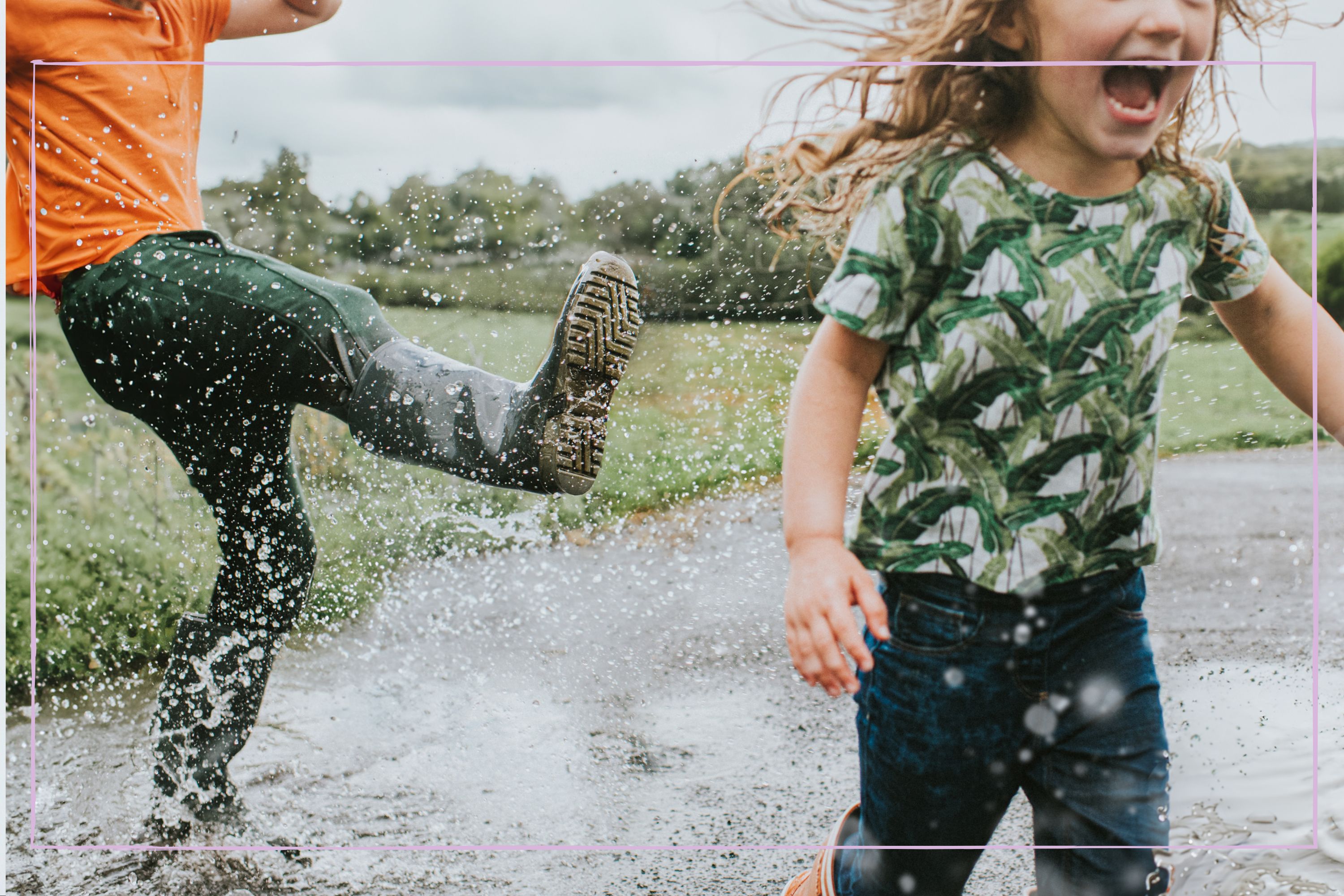
With children in Nordic countries having a lower rate of childhood mental heath issues than any other nation, author and parent Helen Russell makes a good case for raising all kids the 'Danish way.'
The digital age has given rise to many different parenting styles that simply didn't exist before the internet. We've seen gentle parenting take off and 73% of millennials believe they are doing a better job of raising kids today than their own parents did thanks to the new parenting approaches.
But how does the millennial parenting approach in countries like the UK and US compare to that of other countries? Well, according to author and parent Helen Russell, 43, we have a lot to learn from Nordic countries when it comes to parenting.
Russell emigrated from the UK to Denmark 10 years ago with her husband and, three children later, they are raising their kids, aged between six and nine, the 'Danish way' which she believes is the best way to raise happy, healthy kids.
In fact, she believes so strongly in the Nordic countries' approach that she's written not one, but two books about it. Her best-selling books, The Year Of Living Danishly and How To Raise A Viking, both detail the many cultural differences between Britain and Denmark as Russell highlights how Nordic countries approach parenting, an approach that has led to them having some of the happiest kids in the world.
Children in Nordic countries (Iceland, Finland, Norway, Sweden and Denmark), according to UNICEF data, have a lower rate of childhood mental heath issues than any other nation and Denmark in particular has regularly and scientifically been proven to be one of the happiest nations on earth since the 1970s.
Following news that the number of children taking sleeping pills in the UK has doubled over past 7 years mainly due to mental health struggles and the coining of the new term ‘the anxious generation’ to describe today's teenagers, it's a compelling argument to get the rest of us following the Danish approach to parenting. But how do parents do that? Speaking to The Sun, Russell revealed her top three tips;
1. Get outdoors - no matter the weather. Helen reminds us, “You are lucky to have a body that works, so you get out in nature every day and get your body moving.”
There is so much research showing how important spending time in nature is for wellbeing and, whether you're spending time out there playing with the best outdoor toys and games for kids of all ages or you follow Helen Skelton's 5 free and easy tips for getting kids outdoors, the fresh air and exercise is beneficial for people of all ages.
"There is a tendency to stay indoors when it’s wet and windy. In Nordic countries, there is no such thing as bad weather, just the wrong clothes,” Russell says. "[Being outdoors] is helping to raise your children’s tolerance for discomfort. When they’ve managed to do a hard thing, they feel confident, proud and have a sense of mastery over their bodies and their surroundings.
“It helps children to be more confident and self-sufficient being outside in nature.”
2. Eat well and as a family. "You can’t even buy individual packets of crisps where I live in Jutland,” Russell says when describing the differences in snack culture between the UK and Denmark. “Of course, there are Danish pastries, and people eat a lot of butter. But the emphasis is to give children food to fuel them – oats, rye bread and fresh, seasonal produce.”
But just as important as what you eat is who you eat with. “Danes always sit together as a family for mealtimes. It is never in front of the TV. And there are no ultimatums, none of the: ‘If you don’t eat your greens, there is no pudding,’ which can lead to rows. If a child says they are not hungry, there is no big fuss."
3. Playtime is a priority. In the UK, 65% of parents struggle to find time to play with their kids, and while Helen admits that in Denmark there is a similar struggle with scheduling, playtime is seen as a vital element of a child's life. "Play makes us happier and healthier, and can aid learning, improve problem-solving and even help with social mobility and reducing inequality,” she says.
The way that kids play is also important, with Nordic parents believing that play-fighting and risky play is especially good for kids. “It doesn’t matter if you get a few bumps and bruises,” promises Russell. “I often feel like I don’t have time to play, but the idea is that you make that a priority."
In other family news, giving teens ‘space and opportunity’ to be independent helps them thrive according to an educator - here’s 3 top tips to get started. Plus, do you get your kids’ names mixed up? Psychologist reveals why your brain makes this ‘common glitch’ and it’s not the reason you think. And a parenting expert shares the one ‘emotional habit’ that can affect kids’ ‘security’ and ‘trust in themselves’ and what parents can say and do instead to break the cycle.







